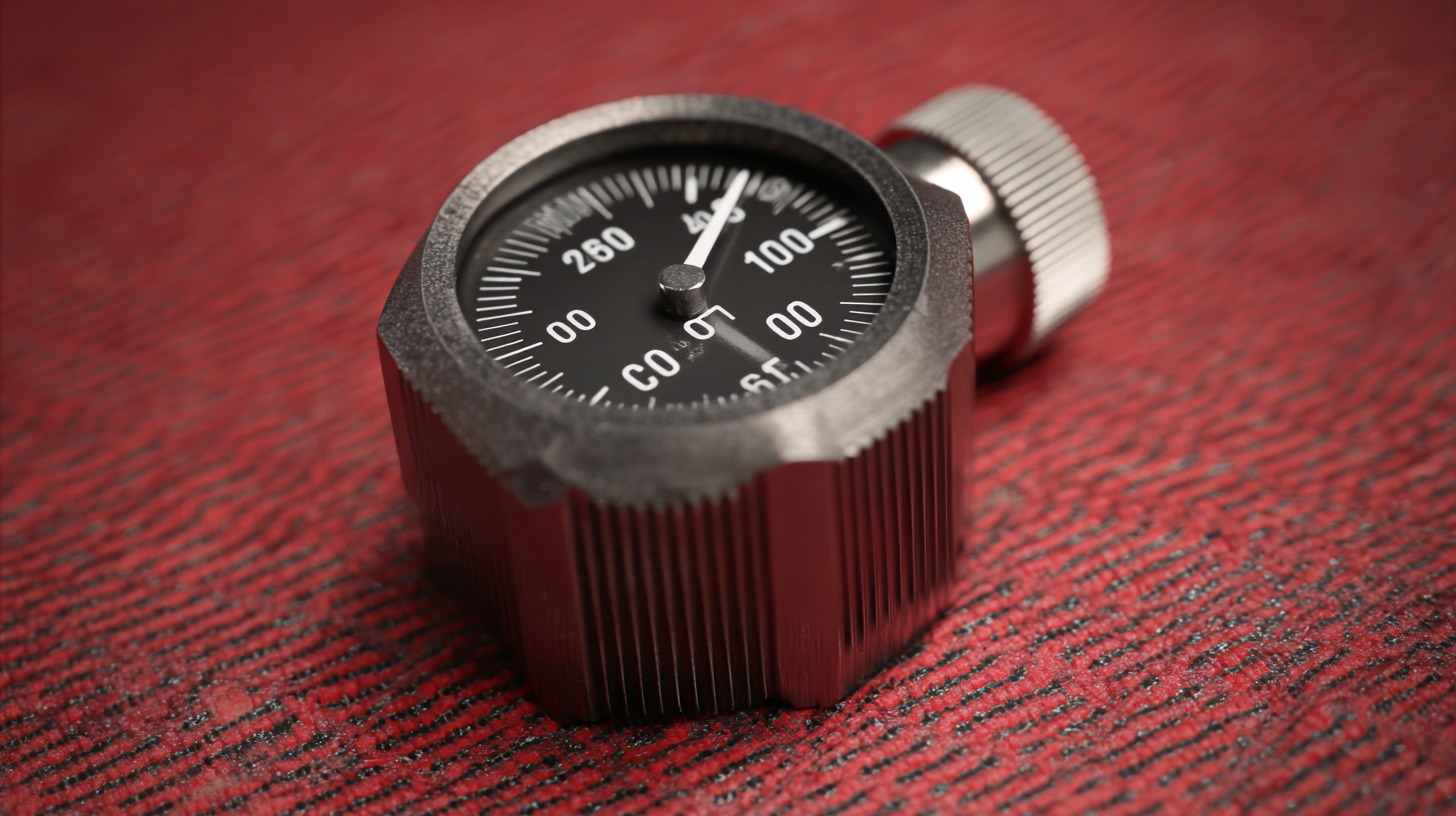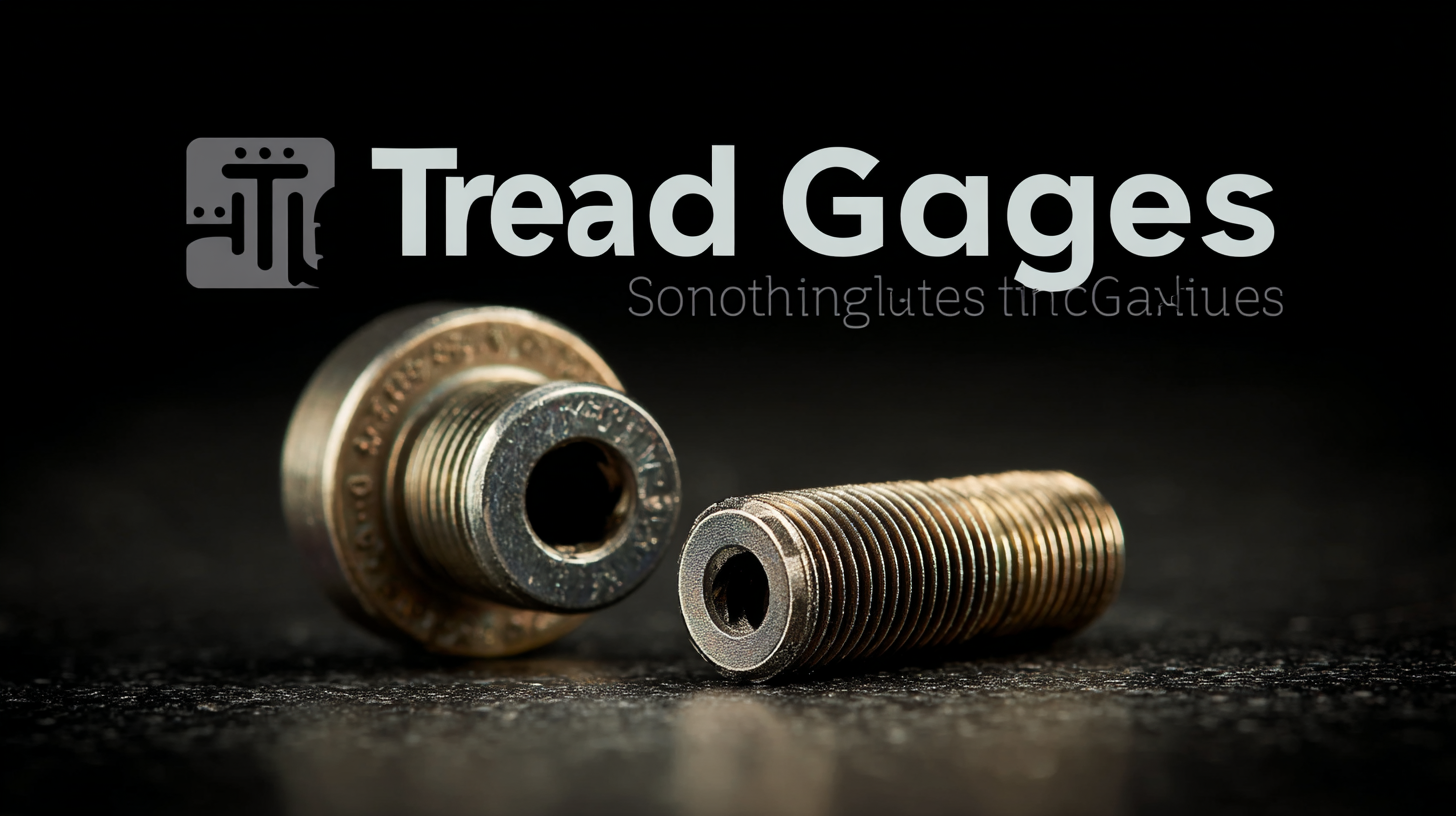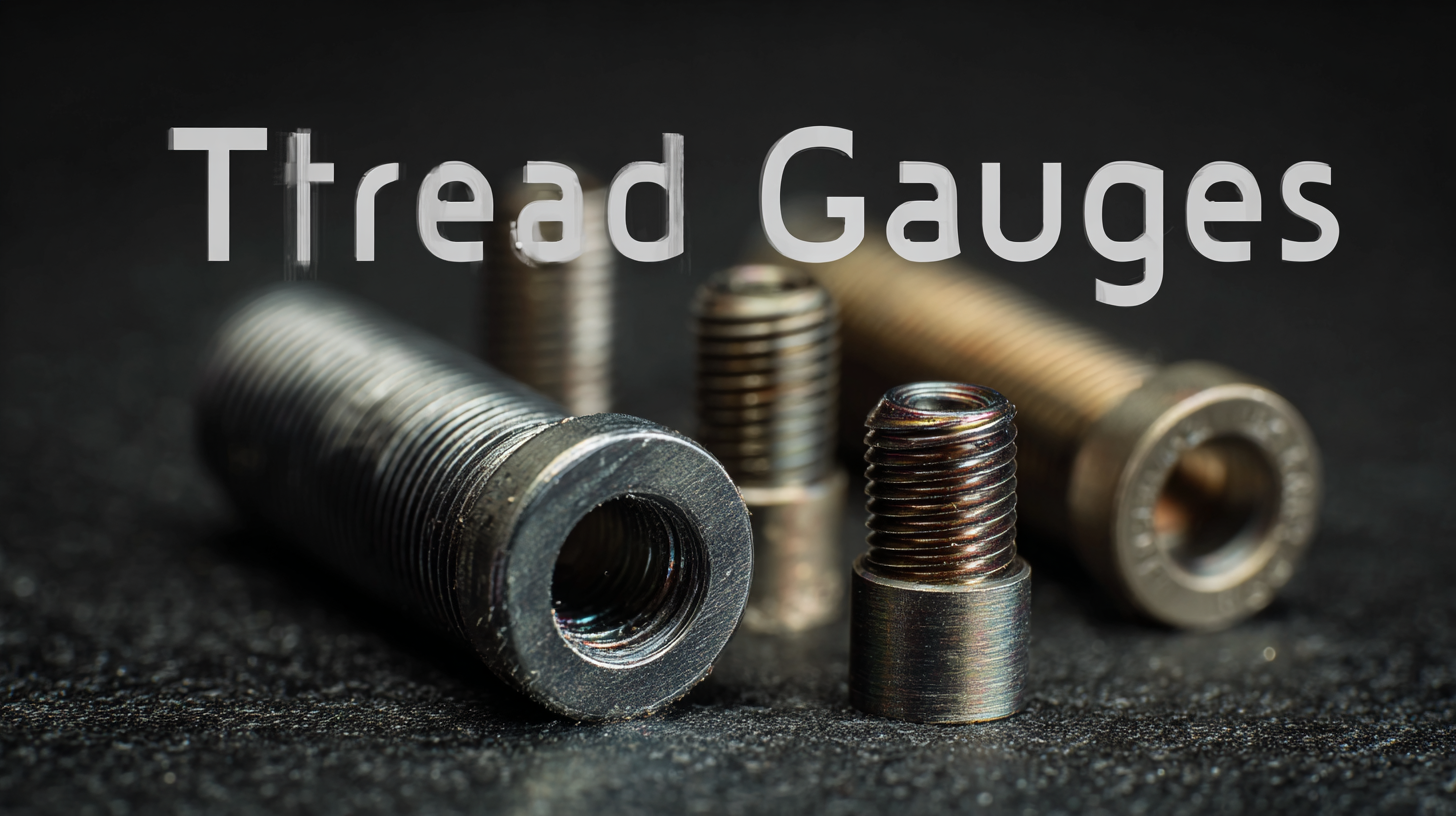
In the realm of manufacturing, ensuring precision and reliability in measurements is paramount, particularly when it comes to thread gauges. According to a recent report by the International Organization for Standards, approximately 30% of manufacturing defects are attributed to measurement errors, underscoring the critical role of high-quality thread gauges in maintaining production standards.

As China continues to enhance its manufacturing capabilities, the demand for premium thread gauges has surged, driven by a global market that increasingly prioritizes quality. The implementation of advanced gauge technology not only improves product quality but also supports manufacturers in meeting stringent international standards.
As global sales of thread gauges are predicted to grow at a CAGR of 5.2% through 2025, sourcing the best options available becomes essential for manufacturers looking to streamline their operations and achieve competitive advantage. Thus, understanding how to effectively source the best thread gauges is vital for businesses aiming to thrive in a quality-focused market environment.
When it comes to precision manufacturing, sourcing high-quality thread gauges is crucial for ensuring accurate measurements and maintaining product integrity. In 2025, manufacturers will face new challenges in identifying the best tools for their operations. To navigate this landscape, strategic approaches are essential.
One effective strategy is to prioritize suppliers with a strong reputation for manufacturing high-quality gauges. Look for companies that specialize in precision tools and have a track record of quality assurance. Checking certifications and customer reviews can give insight into their reliability. Engaging with suppliers directly to discuss their production processes and quality control measures can also foster a deeper understanding of their products.
Another crucial tip is to consider the material and design of the thread gauges. High-quality gauges are often made from robust materials like steel or tungsten carbide, which enhance durability and accuracy. It’s also beneficial to choose gauges designed for specific applications within your manufacturing processes. Custom or specialized gauges can significantly improve measurement precision and efficiency, leading to better overall production outcomes.
Emerging technologies are revolutionizing the manufacturing landscape, particularly in the realm of thread gauge accuracy and efficiency. According to a report by MarketsandMarkets, the global market for precision measurement tools is projected to reach approximately $18 billion by 2025, highlighting the increasing emphasis on precision in industrial applications. Innovations such as digital threading and IoT-enabled gauges provide manufacturers with real-time data, enhancing the accuracy of measurements and reducing error margins significantly.

Automation is another critical factor influencing thread gauge efficiency. The introduction of laser measurement systems allows for non-contact gauging, which improves both speed and accuracy. A recent study by AMETEK asserts that automated gauging systems can decrease inspection time by up to 30%, leading to a more streamlined production process. Furthermore, the integration of AI and machine learning algorithms into quality control systems enables predictive maintenance, effectively reducing downtime and optimizing the manufacturing workflow. As these technologies continue to evolve, the future of thread gauge applications looks promising, offering unprecedented levels of accuracy and efficiency in industrial environments.
When it comes to sourcing the best thread gauges for manufacturing needs, understanding the differences between traditional and digital options is paramount. Traditional thread gauges, made from robust materials, offer reliability and a tactile feedback that many machinists appreciate. They are easy to use with no need for batteries or calibration, making them ideal for environments where simplicity and durability are essential. However, their limitations in precision and the potential for human error in manual reading can be drawbacks for some applications.

On the other hand, digital thread gauges have revolutionized the way manufacturers measure threads. With their electronic displays, they provide precise measurements with high accuracy, allowing for easier reading and reducing the risk of misinterpretation. Many digital gauges come equipped with features like data storage, automatic calibration, and the ability to switch between different measurement units, which can enhance productivity and streamline quality control processes. However, they require batteries and may be susceptible to damage in harsh environments.
Ultimately, the choice between traditional and digital thread gauges hinges on specific manufacturing needs, including the accuracy required, working conditions, and personal preferences. Balancing the pros and cons of each type will help manufacturers determine the best fit for their operations.
Sourcing the right thread gauges is crucial for manufacturing, especially in today's competitive market. To ensure you are making cost-effective choices, it is essential to thoroughly evaluate potential suppliers. Start by considering their reputation and experience in the industry. A well-established supplier who specializes in thread gauges is likely to provide better quality and support.
Tips: Always ask for samples before committing to a large order. This will allow you to assess the quality and precision of the gauges firsthand. Additionally, check customer reviews and testimonials to gather insights into the supplier's reliability and service levels.
Another important factor to consider is the supplier's pricing structure. Compare quotes from multiple vendors but be cautious of extremely low prices, as they may indicate inferior quality.
Tips: Negotiate for bulk pricing or long-term partnerships to secure better deals. Also, consider suppliers that offer additional services like calibration or customization, which can add value to your purchase and enhance your production process.
In the realm of manufacturing, the evolution of thread gauges is increasingly being shaped by advancements in material science. As industries demand greater precision and durability, manufacturers are turning to new materials such as advanced composites and specialty alloys. These materials not only enhance the strength and wear resistance of thread gauges but also enable their production at a lower cost and with improved accuracy. The integration of these innovations promises to redefine performance metrics, making thread gauges more reliable for critical applications across various sectors.
Tip: When selecting thread gauges, consider the specific environment in which they'll be used. Gauges made from corrosion-resistant materials are essential for applications in harsh conditions, ensuring longevity and maintaining measurement integrity.
Another emerging trend is the use of 3D printing technologies in producing thread gauges. This method allows for rapid prototyping and customization, catering to unique manufacturing needs. As 3D printing continues to advance, it can facilitate the creation of complex geometries that traditional manufacturing methods may struggle to achieve, leading to better fitting and more efficient gauging solutions.
Tip: Stay updated on the latest trends in production technology. Engaging with suppliers who are at the forefront of these innovations can provide access to enhanced thread gauges that significantly improve your manufacturing processes.

